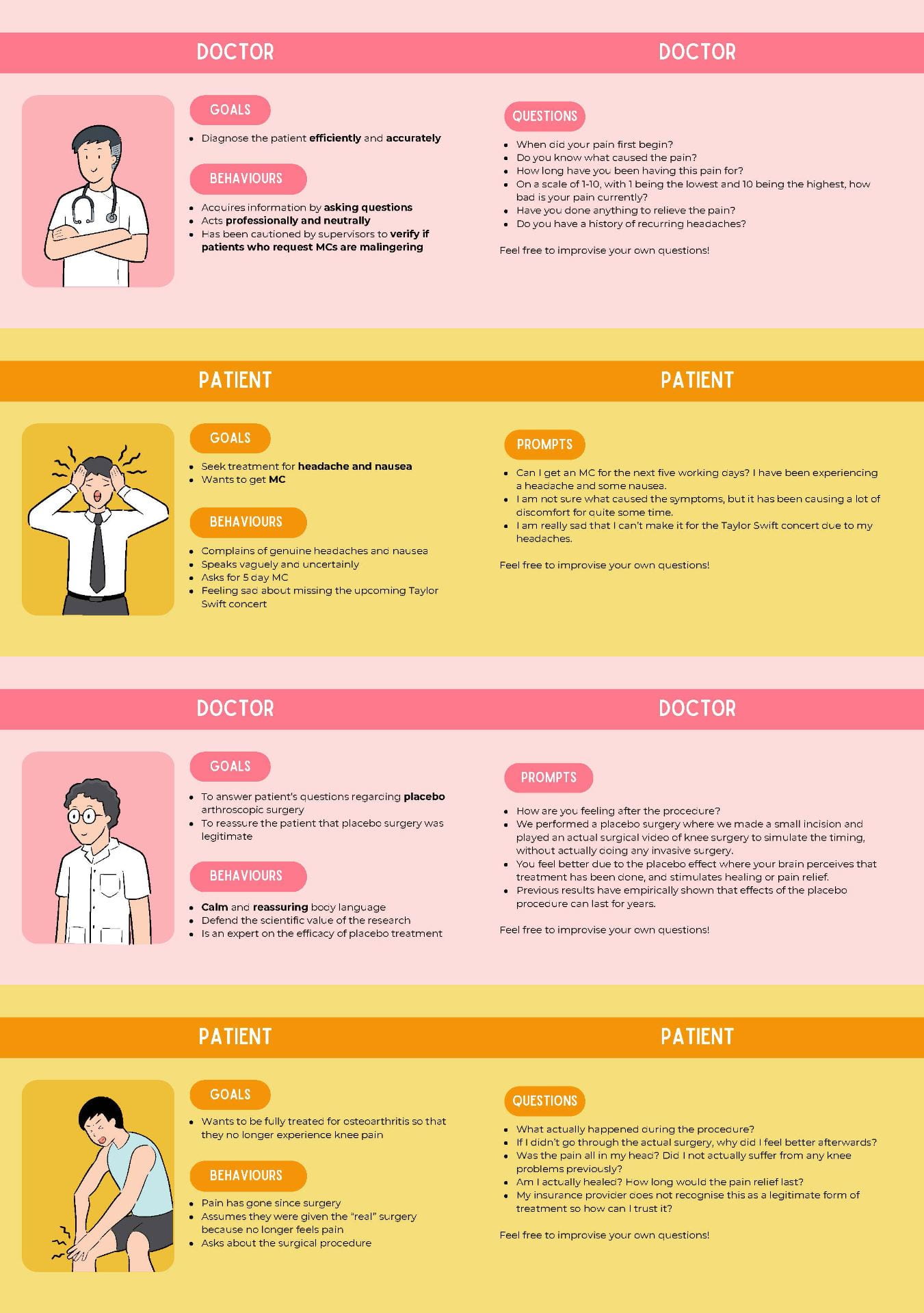Alex MITCHELL1, Weiyu ZHANG1, Jingyi XIE1, Bimlesh WADHWA2, and Eric KERR3
1Department of Communications and New Media (CNM), Faculty of Arts and Social Sciences (FASS)
2Department of Computer Science, School of Computing
3Tembusu College and Asia Research Institute (ARI)
Editor’s Note: Alex and his co-authors share a summary of the findings from the study they shared at HECC 2023 under the sub-theme “AI and Education”.
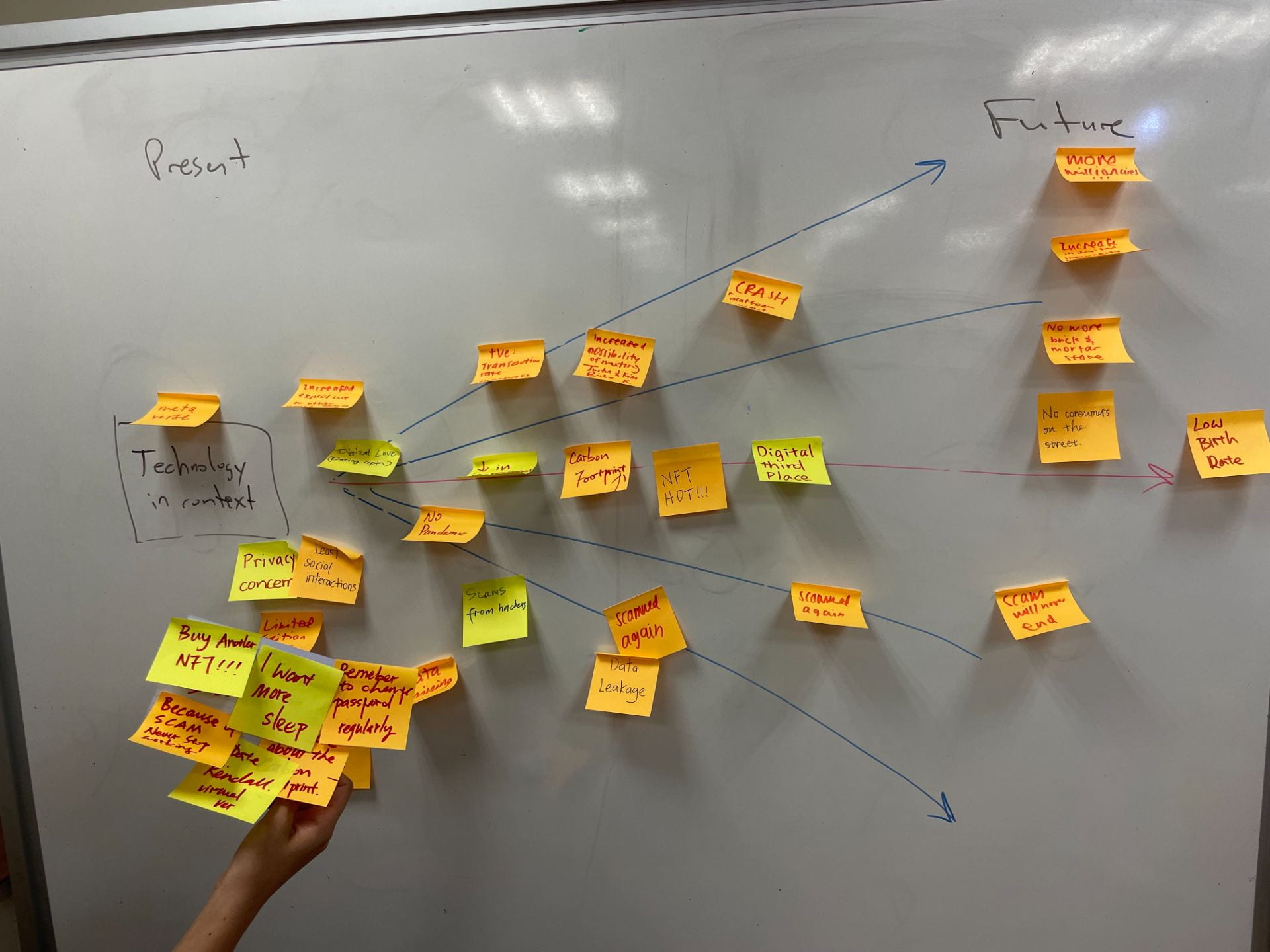 |
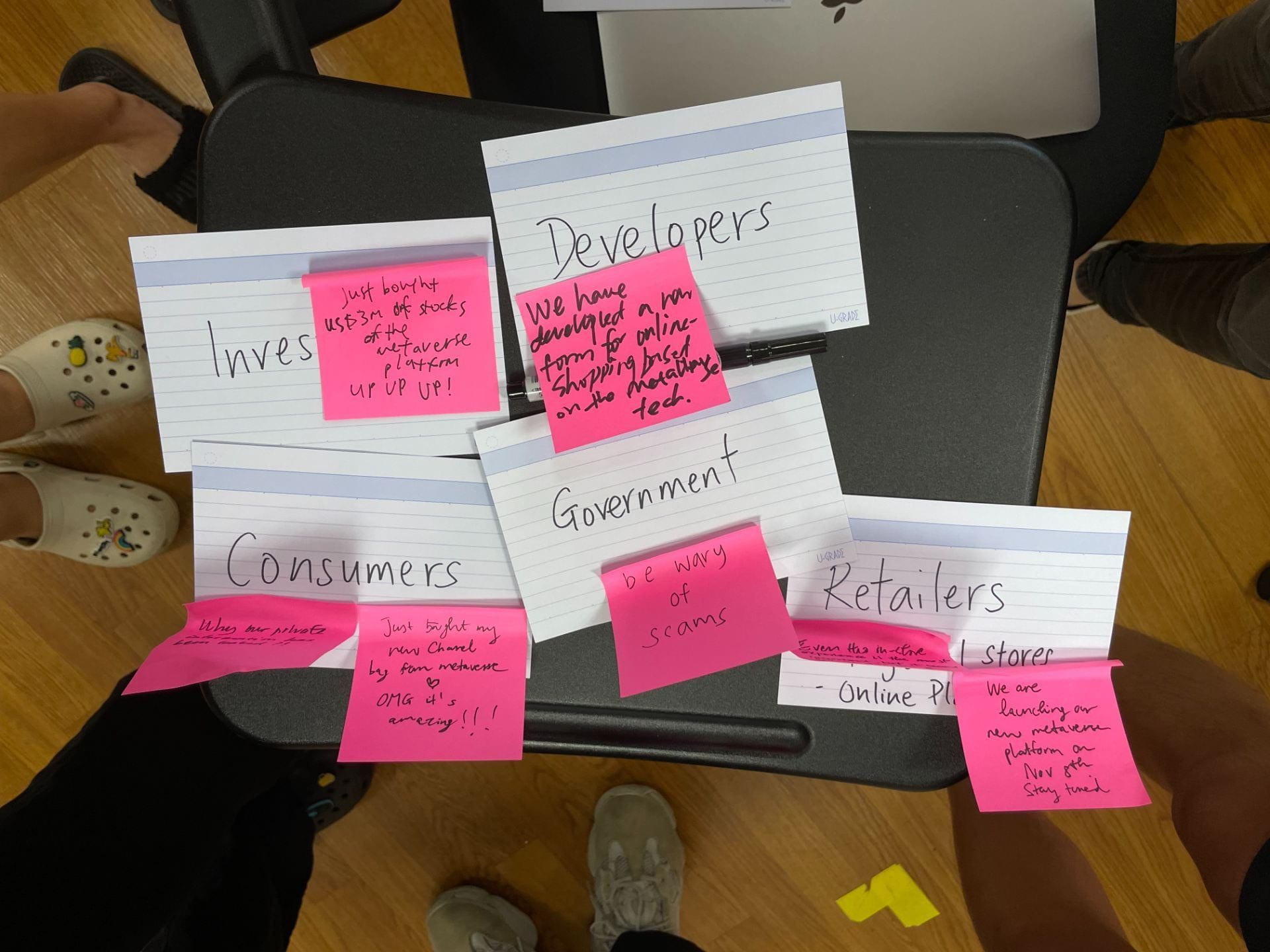 |
| Activity-based approaches such as Timelines were used to teach students ICT ethics. (Photo provided by the authors) | |
Mitchell, A., Zhang, W., Xie, J., Wadhwa, B., & Kerr, E. (2024, April 29). Exploring activity-based instructional approaches to develop students’ understanding of the ethical implications of technology [HECC 2023 Summary]. Teaching Connections. https://blog.nus.edu.sg/teachingconnections/2024/04/29/exploring-activity-based-instructional-approaches-to-develop-students-understanding-of-the-ethical-implications-of-ict/
Current approaches to information and communication technology (ICT) ethics education often take three approaches: ethical guidelines, fairness toolkits, and activity-based co-design (Zhang, 2022). Using ethical guidelines can be problematic, as they take an action-restricting, checkbox-based approach, making them limiting and hard to adapt to individual situations (Hagendorff, 2020). Fairness toolkits provide a more tangible bridge between abstract values and technical implementations but often have limitations in adaptability, and if poorly designed can give a false sense of security (Lee & Singh, 2021). Finally, activity-based techniques such as design fiction and speculative design (Baumer et al., 2020; Pierce, 2021) take a playful and engaging approach to ICT ethics, and can potentially help designers to reflect on their decisions and play the role of stakeholders. However, such activity-based techniques are currently underexplored.
We explored two different activity-based approaches to teach ICT ethics: Value Cards (Shen et al., 2021) and Timelines (Wong & Nguyen, 2021). We examined the use of these approaches across four courses: for NM2209 “Social Psychology of New Media” and UTC1102C “Fakes”, value cards were deployed to explore the implications of AI-generated content and telehealth (see Figures 1 and 2).
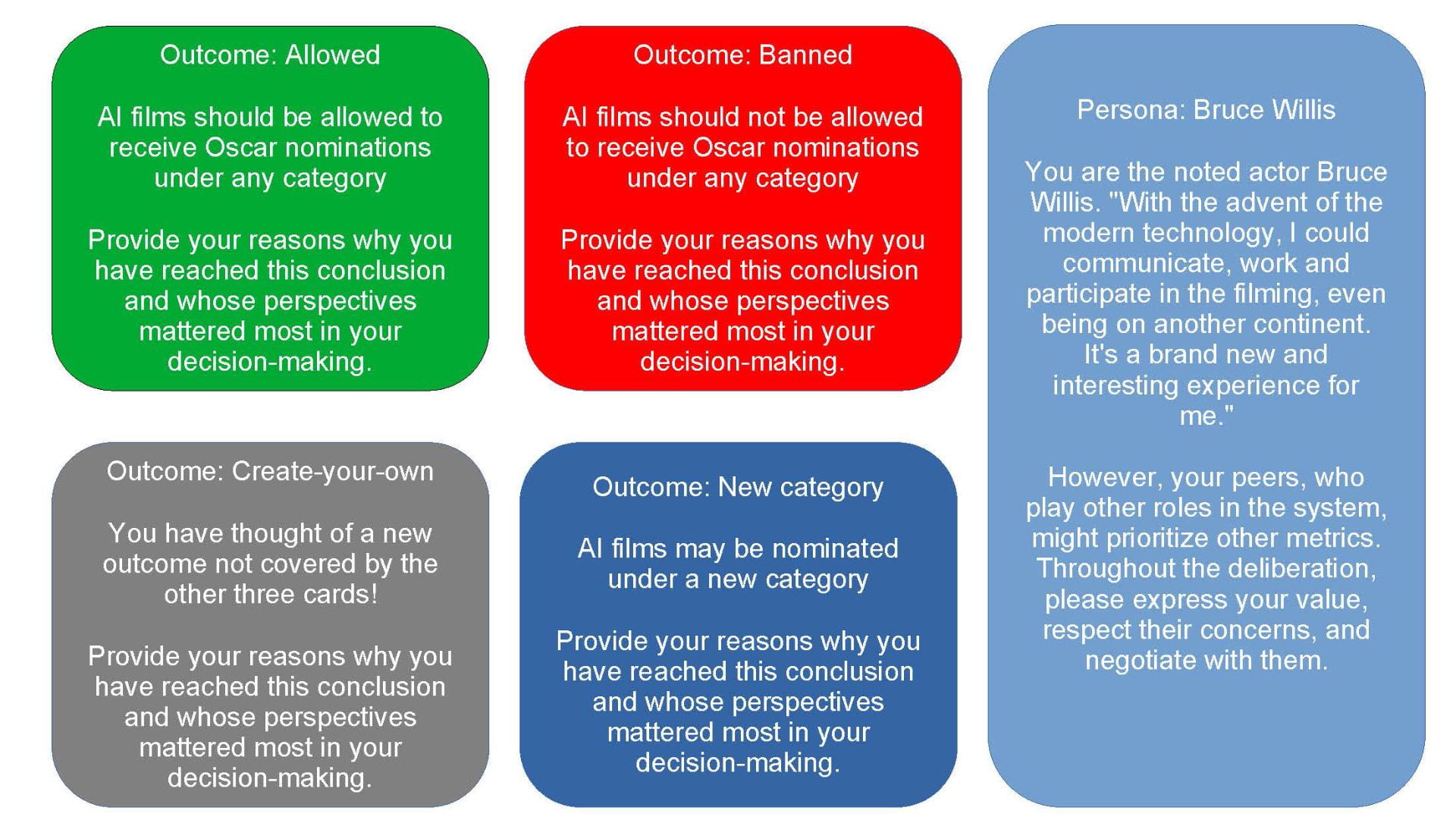 Figure 1. AI value cards. (NM2209 “Social Psychology of New Media” and UTC1102C “Fakes” – Click on Figure 1 for a full-sized version)
Figure 1. AI value cards. (NM2209 “Social Psychology of New Media” and UTC1102C “Fakes” – Click on Figure 1 for a full-sized version)
Figure 2. Second version of value cards for UTC1102C, showing additional structure given to participants via loose scripts. (Click on Figure 2 for a full-sized version)
For CS3240 “Interaction Design”, value cards were used to discuss dark patterns such as nudges (Figure 3); and for NMC5322 “Interactive Media Marketing Techniques” we used Timelines (Figure 4) to explore the impact of various ICTs, such as AI, gamification, and the metaverse, on interactive marketing.
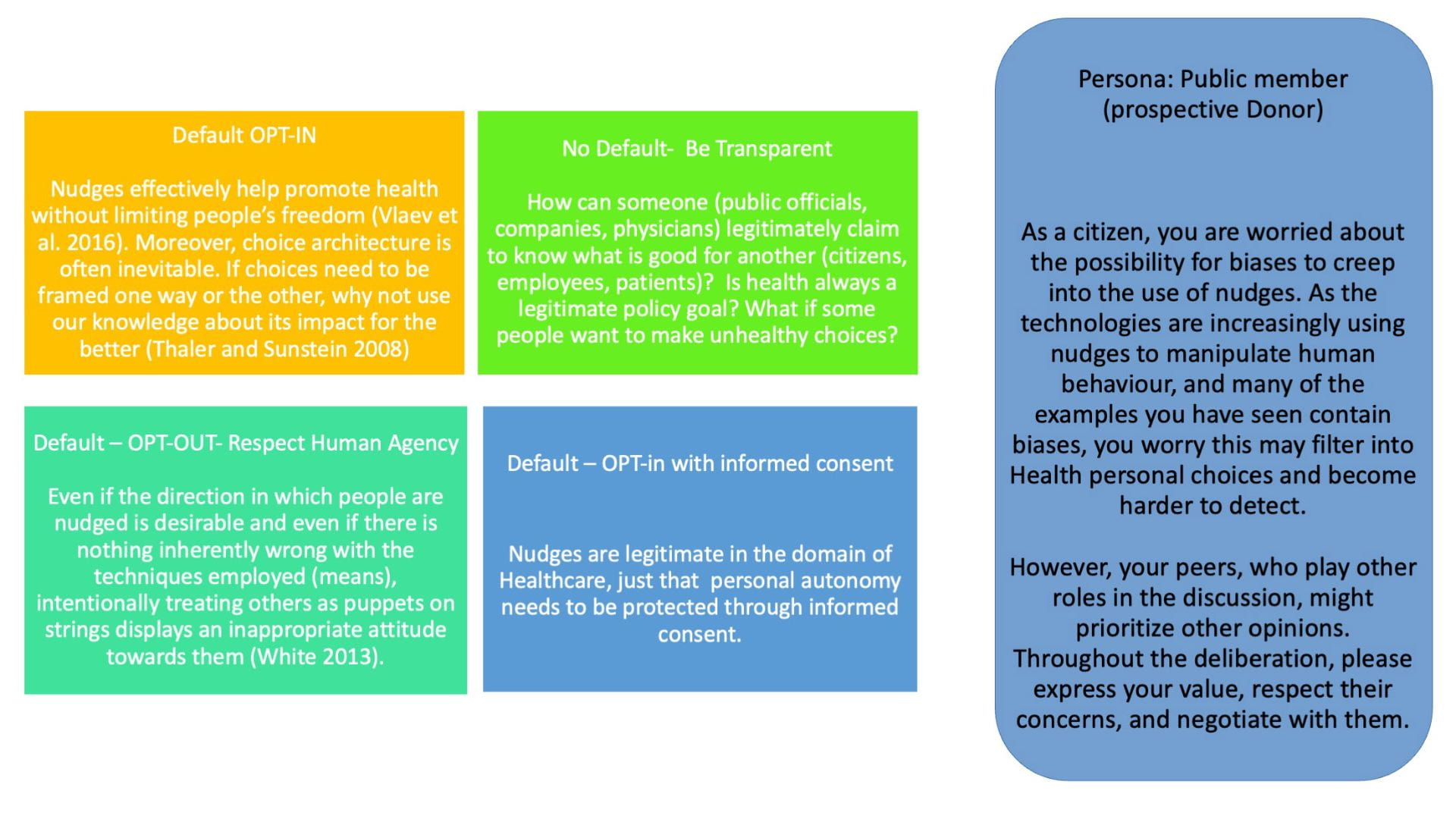 Figure 3. Dark patterns value cards. (for CS3240 “Interaction Design” – click on Figure 3 for a full-sized version)
Figure 3. Dark patterns value cards. (for CS3240 “Interaction Design” – click on Figure 3 for a full-sized version)
 |
 |
Figure 4. Timelines activities in NMC5322 “Interactive Media Marketing Techniques”.
Each activity was paired with lecture material, and students participated in post-semester focus groups to investigate their reactions. We also reflected on our own experiences using the tools.
In general, students found the activities to be engaging and interesting:
“I really enjoy the role-play activity in the last tutorial and…discussions can aid in studying ethics. I think ethics is quite underpinned by philosophy, and I have taken philosophy [courses] about ethics. And like within those, a lot of it revolves around discussion. So I think perhaps one way to improve learning is having more structured discussions, whereby, like the whole class is involved, so more ideas can be bounced around.”
Students were also able to recall the key learning points during the focus group discussion:
“We had to discuss about[sic] the merits of, and the ethical behind having an AI-controlled movie star. I think what we a lot of us in class spoke about was about the authenticity of AI and how it will to mirror actual humans. And we were talking about how like a bit scary that quite a good portion of the class will be OK with the idea of allowing AI movie star.”
However, they still felt it was a bit abstract:
“I think, when it comes to like ethics, perhaps if we do a project, it could be more effective because it’s like given a scenario for a company, then the groups are given permission to go to the companies and see how the company should go about their ethics. However, realistically it could be quite a lot to do. But let’s say if it’s like a FYP (final year project). A project would be more realistic because it’s like a long timeframe.”
From the lecturers’ perspective, scaffolding of the topic during lecture beforehand was very important, so students could contextualise the activity. For Timelines, the choice of topic and context was particularly crucial. As Timelines is not as structured as Value Cards, students needed more prompting to expand on the concepts in an appropriate and useful direction. For all activities, reflection was challenging, and very much depended on how well the activity turned out. It was important to take time to structure the final discussion, as some groups were very positive about ICT use and not as critical as we had expected. Raising issues and questions during the activity can help encourage more critical thinking and eventual reflection after the activity is completed.
We found activity-based approaches such as Value Cards and Timelines to be very concrete and hands-on approaches that are able to engage students effectively. They provide playful ways to explore possible ethical issues around the use of new forms of ICT such as AI and telehealth, and are flexible and adaptable to specific topics and situations. As such, these approaches are able to overcome the weaknesses of more abstract ethical guidelines and sometimes overly technical or specific fairness toolkits. However, using an activity-based approach requires additional effort to structure and guide the students towards the desired critical thinking and to make connections to their own lives.
References
Baumer, E. P. S., Blythe, M., & Tanenbaum, T. J. (2020). Evaluating design fiction: The right tool for the job. Proceedings of the 2020 ACM Designing Interactive Systems Conference, 1901–13. https://doi.org/10.1145/3357236.3395464
Hagendorff, T. (2020). The ethics of AI ethics: An evaluation of guidelines. Minds and Machines, 30(1), 99–120.
Lee, M. S. A., & Singh, J. (2021). The landscape and gaps in open source fairness toolkits. Proceedings of the 2021 CHI Conference on Human Factors in Computing Systems, 1–13. https://doi.org/10.1145/3411764.3445261
Pierce, J. (2021). In tension with progression: Grasping the frictional tendencies of speculative, critical, and other alternative designs. Proceedings of the 2021 CHI Conference on Human Factors in Computing Systems, 1–19. https://doi.org/10.1145/3411764.3445406
Shen, H., Deng, W. H., Chattopadhyay, A., Wu, Z. S., Wang, X., & Zhu, H. (2021). Value cards: An educational toolkit for teaching social impacts of machine learning through deliberation. Proceedings of the 2021 ACM Conference on Fairness, Accountability, and Transparency, 850–61.
Wong, R. Y., & Nguyen, T. (2021). Timelines: A world-building activity for values advocacy. Proceedings of the 2021 CHI Conference on Human Factors in Computing Systems, 1–15. https://doi.org/10.1145/3411764.3445447
Zhang, W. (2022). Civic AI education: Developing a deliberative framework. Proceedings of the 4th Annual Symposium on HCI Education (EduCHI’22), April 30-1 May 2022.
 |
Alex MITCHELL teaches in the Department of Communications and New Media, Faculty of Arts and Social Sciences (FASS). His research investigates defamiliarisation in gameplay, motivations for replaying story-focused games, authoring tools, and collaborative storytelling. He is a founding member of the executive board of the Association for Research in Digital Interactive Narratives (ARDIN). Alex can be reached at alexm@nus.edu.sg. |
 |
Weiyu ZHANG is Professor at the Department of Communications and New Media, FASS. Her research focuses on civic engagement and Information and Communication Technologies, with an emphasis on Asia. She is Director of the Civic Tech Lab (www.civictechlab.org) and has led on multi-nation projects on youth engagement, online deliberation, and civic tech in Asia. Weiyu can be reached at weiyu.zhang@nus.edu.sg.
|
 |
Jingyi XIE is a Master by Research student, studying at the Department of Communications and New Media, FASS. Her research interest lies in Novel food, science communication and food communication. She primarily focuses on investigating acceptance and adoption of novel food through different media theories and lens. |
 |
Bimlesh WADHWA is an Associate Professor and Assistant Dean (Student Life) at the School of Computing, and Residential Fellow at Tembusu College at the National University of Singapore. Her research interests include gender issues in human-computer interaction, user modelling and evaluation of health applications, and in improving the quality of software design models. Bimlesh can be reached at bimlesh@nus.edu.sg. |
 |
Eric KERR is a philosopher and Senior Lecturer at the National University of Singapore, Research Fellow at the Asia Research Institute (ARI), Director at Tembusu College, and the Editor-in-Chief of Social Epistemology. Eric’s work has covered contemporary philosophical and sociological issues in science and technology, engineering, and digital culture, with a particular focus on the relationships between knowledge, technology, and society. Eric can be reached at eric.kerr@nus.edu.sg. |

